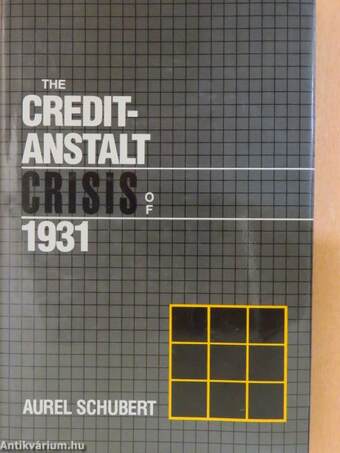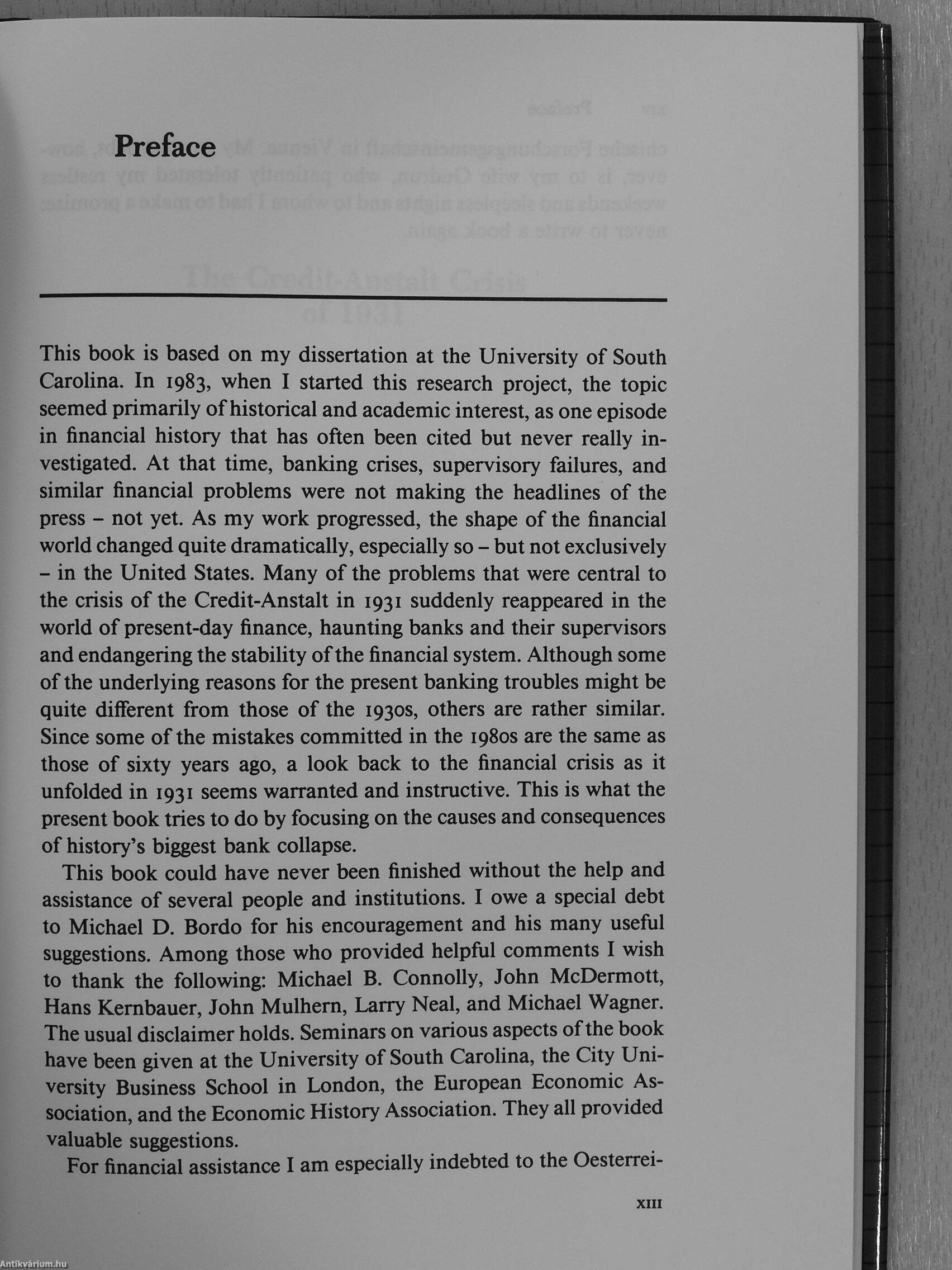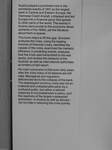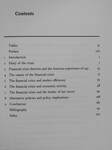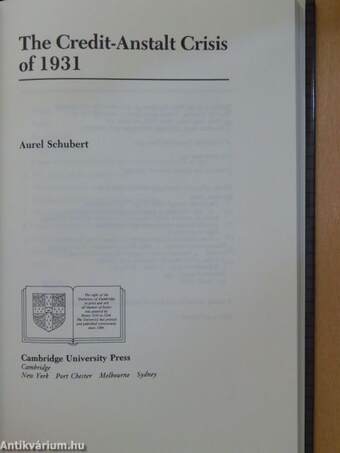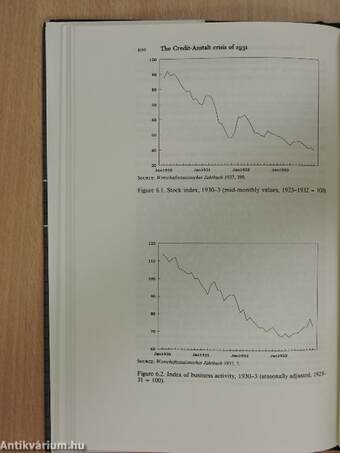1.067.053
kiadvánnyal nyújtjuk Magyarország legnagyobb antikvár könyv-kínálatát

VISSZA
A TETEJÉRE
JAVASLATOKÉszre-
vételek
The Credit-Anstalt Crisis of 1931
| Kiadó: | Cambridge University Press |
|---|---|
| Kiadás helye: | Cambridge |
| Kiadás éve: | |
| Kötés típusa: | Vászon |
| Oldalszám: | 203 oldal |
| Sorozatcím: | |
| Kötetszám: | |
| Nyelv: | Angol |
| Méret: | 24 cm x 16 cm |
| ISBN: | 0-521-36537-6 |
| Megjegyzés: | Első kiadás. Fekete-fehér ábrákkal. |
naponta értesítjük a beérkező friss
kiadványokról
naponta értesítjük a beérkező friss
kiadványokról
Előszó
TovábbFülszöveg
Austria played a prominent role in the worldwide events of 1931 as the largest bank in Central and Eastern Europe, the Viennese Credit-Anstalt, collapsed and led Europe into a financial panie that spread to other parts of the world. The events in Austria were pivotal to the economic devel-opments of the 1930s, yet the literatúre about them is sparse.
This book helps to fili this gap. Schubert analyzes the crisis, using the leading theories of financial crises, identifies the causes of the crisis, examines the markeťs efficiency in predicting events, analyzes how the crisis was transmitted to the real sector, and studies the behavior of the Austrian as well as international authorities as lenders of last resort.
His main conclusion is that even sixty years after the crisis many of its lessons are still valid. Managerial and regulátory deficiencies led to the collapse of the bank. The subsequent currency crisis was not an irrational and unexplainable panic by a confused public,... Tovább
Fülszöveg
Austria played a prominent role in the worldwide events of 1931 as the largest bank in Central and Eastern Europe, the Viennese Credit-Anstalt, collapsed and led Europe into a financial panie that spread to other parts of the world. The events in Austria were pivotal to the economic devel-opments of the 1930s, yet the literatúre about them is sparse.
This book helps to fili this gap. Schubert analyzes the crisis, using the leading theories of financial crises, identifies the causes of the crisis, examines the markeťs efficiency in predicting events, analyzes how the crisis was transmitted to the real sector, and studies the behavior of the Austrian as well as international authorities as lenders of last resort.
His main conclusion is that even sixty years after the crisis many of its lessons are still valid. Managerial and regulátory deficiencies led to the collapse of the bank. The subsequent currency crisis was not an irrational and unexplainable panic by a confused public, but rather a rational response to inconsistencies in policy, and the reactions of the largely unprepared authorities-in Austria as well as abroad-did not help in resolving the crisis quickly. Vissza
Témakörök
- Közgazdaságtan > Gazdaságpolitika
- Közgazdaságtan > Pénzügy > Hitel
- Közgazdaságtan > Gazdaságtörténet > Tanulmányok
- Idegennyelv > Idegennyelvű könyvek > Angol > Közgazdaságtan > Gazdaságpolitika
- Idegennyelv > Idegennyelvű könyvek > Angol > Közgazdaságtan > Pénzügy > Hitel
- Idegennyelv > Idegennyelvű könyvek > Angol > Közgazdaságtan > Gazdaságtörténet > Tanulmányok
Aurel Schubert
Aurel Schubert műveinek az Antikvarium.hu-n kapható vagy előjegyezhető listáját itt tekintheti meg: Aurel Schubert könyvek, művekMegvásárolható példányok
Nincs megvásárolható példány
A könyv összes megrendelhető példánya elfogyott. Ha kívánja, előjegyezheti a könyvet, és amint a könyv egy újabb példánya elérhető lesz, értesítjük.



